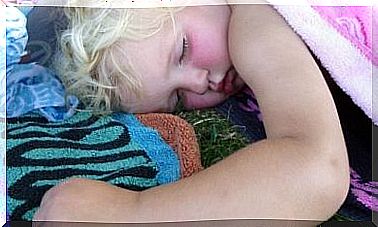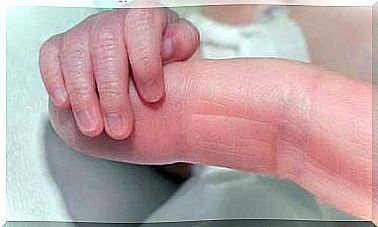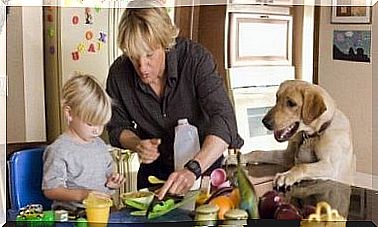Foods Rich In Vitamins: The 8 Best
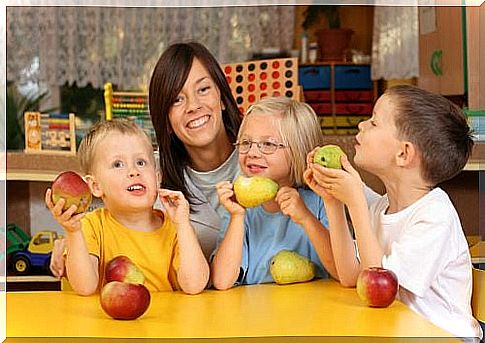
Nutrition is central to the proper physical, mental and emotional development of any person. During childhood, a stage of growth and maturation, getting the right nutrients is essential. For this reason, today we present a list with the 8 best vitamin-rich foods for children.
Vitamins are essential substances in our body. In the following lines we remind you of their importance and their functions within the body. Of course we will provide you with information about the food that contains them. Find out which foods rich in vitamins are so good for our children.
Why are vitamins important for children?
There are several vitamins and of different types. For example, there are fat-soluble, group A, D, E, and K that are absorbed together with fat. Or the water-soluble ones as for group C and B; which are absorbed together with water.
The 8 best vitamin-rich foods for babies
Logically, the first way to get vitamins is to incorporate them into your diet. Multivitamin supplements can also be used; if you want to take the food directly, here is the list of ideal meals for daily needs.
1. Vegetables
Vegetables are an indispensable source of vitamins, although they are not the most popular food for children. Carrots are a source of vitamin A, as are many green leafy vegetables such as lettuce, spinach and chicory. The latter group contains vitamin K and B2. Onion, pepper, cabbage and courgette are other vegetables with a high vitamin content.
2. Dairy products and eggs
Like carrots and the rest of the vegetables with orange pigmentation, dairy products and eggs have a high concentration of vitamin A. This has great benefits for the body: it contributes to the health of the mucous membranes and skin, prevents diseases and is very important. for bone development.
In addition, these foods contain vitamins of group D. They have the particularity of promoting the absorption of calcium which results in a good dentition and bone.
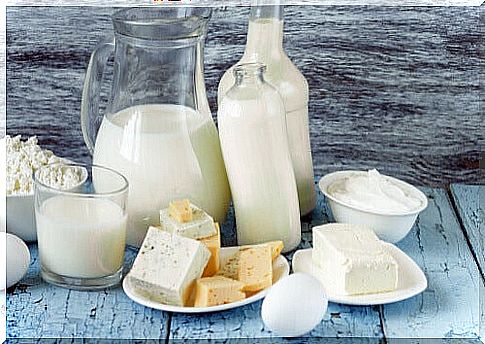
3. Fish
Fish meat is very nutritious. It is also very palatable for the little ones thanks to its texture, aroma and flavor that differs from that of any other type of meat. However, some children may refuse it.
4. Cereals
Cereals as well as legumes have a great variety of B vitamins. In fact, many children’s breakfast products are enriched with these ingredients. An important fact is that they are better absorbed when ingested with milk. Therefore it is recommended to combine them with yogurt or milk.
Vitamin B is very important for energy supply and allows for healthy growth in many ways. It also performs other functions that we will analyze in the course of the article.
5. Meat
In addition to the protein intake, meat contains vitamin B. As we mentioned in the paragraph on cereals, its functions are varied. It collaborates with the functioning of the nervous, digestive and cellular systems.

6. Olive oil
Among the foods rich in vitamins we find olive oil. This food specifically provides vitamin E which is a powerful antioxidant, very beneficial for cell maintenance. In this way, a large number of illnesses can be prevented.
7. Citrus fruits
Although they are not a main source of vitamins, citrus fruits contribute by providing important substances for the immune system; they also have a high percentage of vitamin C. They are very present in kiwi, pineapple, tomato and peppers.
This type of vitamin is found in nuts and is best absorbed when combined with iron. This is why it is important to have meat or fish with a tomato or pepper salad. For dessert you can choose fruit.
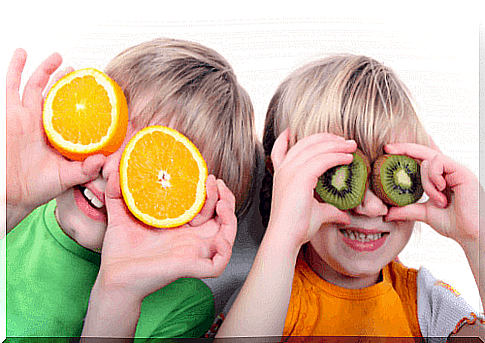
8. Avocado
It is a fruit with a high nutritional value. Avocado contains vitamins E and D whose benefits are described in the previous paragraphs.
If you incorporate these vitamin-rich foods into your baby’s diet, you will have covered much of his nutritional needs. Plan your meals and combine foods with common sense, the result will be a better health for the whole family.





